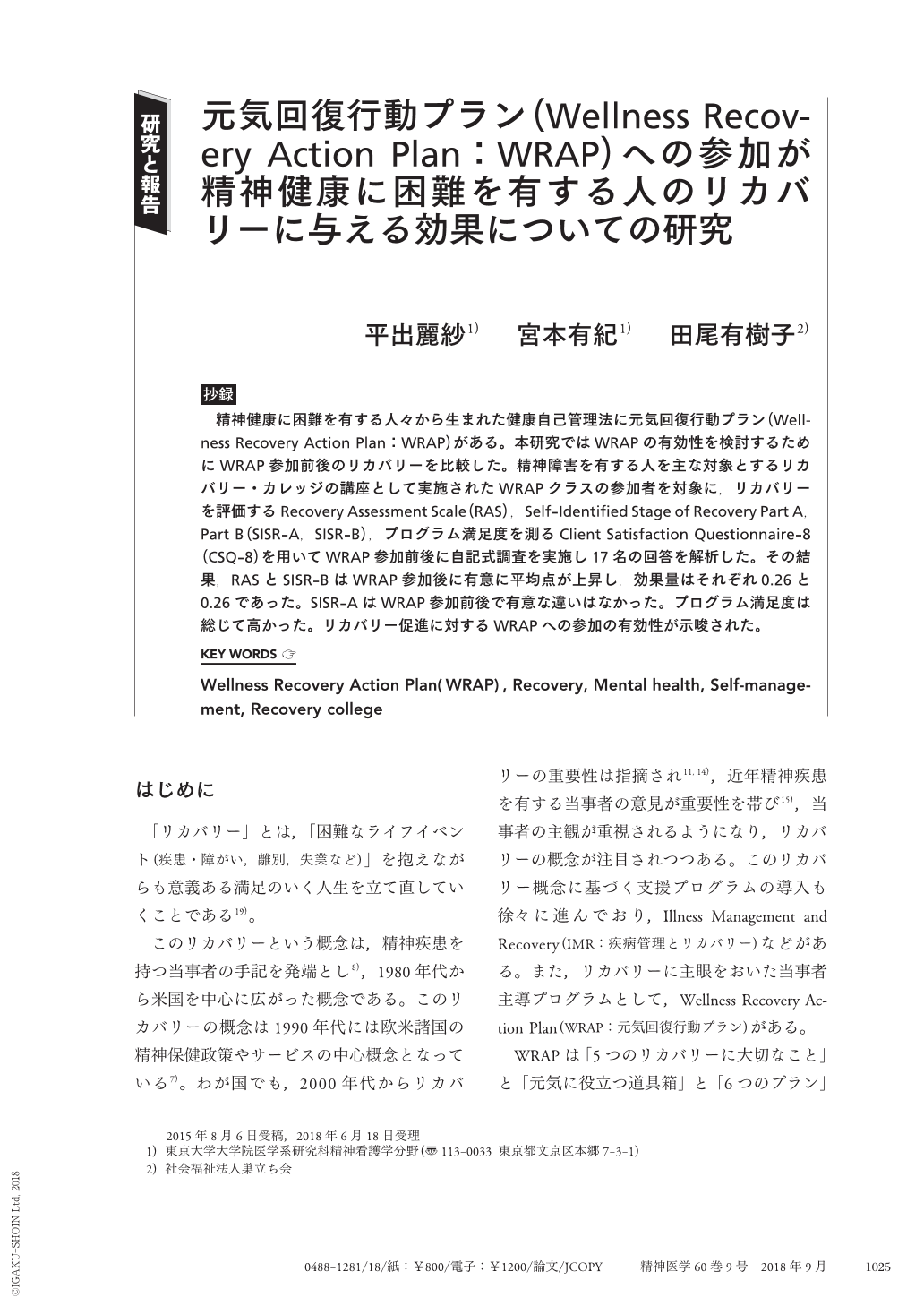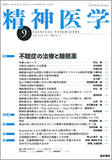Japanese
English
- 有料閲覧
- Abstract 文献概要
- 1ページ目 Look Inside
- 参考文献 Reference
- サイト内被引用 Cited by
抄録 精神健康に困難を有する人々から生まれた健康自己管理法に元気回復行動プラン(Wellness Recovery Action Plan:WRAP)がある。本研究ではWRAPの有効性を検討するためにWRAP参加前後のリカバリーを比較した。精神障害を有する人を主な対象とするリカバリー・カレッジの講座として実施されたWRAPクラスの参加者を対象に,リカバリーを評価するRecovery Assessment Scale(RAS),Self-Identified Stage of Recovery Part A,Part B(SISR-A,SISR-B),プログラム満足度を測るClient Satisfaction Questionnaire-8(CSQ-8)を用いてWRAP参加前後に自記式調査を実施し17名の回答を解析した。その結果,RASとSISR-BはWRAP参加後に有意に平均点が上昇し,効果量はそれぞれ0.26と0.26であった。SISR-AはWRAP参加前後で有意な違いはなかった。プログラム満足度は総じて高かった。リカバリー促進に対するWRAPへの参加の有効性が示唆された。
Background and Objective:Wellness Recovery Action Plan(WRAP)is a wellness self-management tool which was developed within people with mental health challenges. We conducted a pre-post design survey to test the effectiveness of participation in WRAP on recovery.
Methods:A total of 27 persons were recruited from WRAP classes held at Recovery College in Tokyo, Japan. A self-administered questionnaire assessed recovery using Japanese versions of the Recovery Assessment Scale (RAS), the Self-Identified Stage of Recovery (SISR) Part A and Part B at the first and last WRAP sessions, and participants' satisfaction using a Client Satisfaction Questionnaire-8 (CSQ-8) at the end of the WRAP session. Paired sample t-tests were used to determine the effectiveness of WRAP participation on recovery. A total of 17 respondents' pre-post data were analyzed.
Results:Mean scores of RAS and SISR-B showed a significant increase after the WRAP session, and Cohen's effect sizes were 0.26 and 0.26, respectively. There was no significant difference in SISR-A between before and after WRAP participation. Participants' satisfaction was high, and CSQ-8 mean score (SD) was 26.8 (3.5).
Conclusions:The results suggest that participation in WRAP improves recovery.

Copyright © 2018, Igaku-Shoin Ltd. All rights reserved.


